In the growing atmosphere of intolerance which has claimed lives of bloggers, professors, publishers, activists and minority communities for being 'anti-Islamic', Mannan's activism for LGBT rights is the latest casualty.
In the Islamic country of Bangladesh where same sex relations is considered a crime and sin, Xulhaz Mannan was happily and openly gay for over two decades. As an advocate of``human right to love'', Mannan published the country's first LGBT magazine Roopbaan-- named after a Bengali folk character symbolising love-- to promote tolerance towards sexual and gender diversity. When people asked him how he managed to live such a carefree life in Bangladesh, Mannan's generic reply would be: "It's possible and it's great."
In the growing atmosphere of intolerance which has claimed lives of bloggers, professors, publishers, activists and minority communities for being 'anti-Islamic', Mannan's activism for LGBT rights is the latest casualty.
On Monday, Mannan and his friend theater actor Mahbub Tonoy were hacked to death by six unknown assailants in the former's house in Dhaka. The ghastly murder was owned by Ansar al Islam or Ansarullah Bangla Team (ABT) an affiliate of al Qaeda in Indian Subcontinent who claimed to have punished the two for `practicing and promoting' homosexuality.
A pioneering rights activist, Mannan was aware of the impending risks in living as a ``self-identified gay man'' nevertheless took solace in the support offered by liberal thinkers, NGOs and individuals online. The same online platforms also brought an onsulaught of death and abusive threats.
Less than two weeks before his murder, Roopbaan group had posted the invitation for this year's Pride parade and received threats on from anonymous Islamist radicals who warned of beating, killing and molesting those attending the event. Since 2014, when it was first published with the help of USAID, Roopban, began a trend of organising the first pride parade which coincided with the Pohela Boishakh, Bengali new year celebrations held on April 14. Following the threats, police eventually withdrew permissions for the event and the rally was cancelled.
It is not known whether those who killed Mannan and Tonoy were the same group who had threatened online or if they were members of ABT. Local police officials said that investigations are currently on and no arrests have been made.
The twin murders have evoked outrage from US authorities including Secretary of State John Kerry and US ambassador in Bangladesh Marcia Stephens Bloom Bernicat putting pressure on the Bangladesh government to crackdown against the radical Islamists. Mannan worked with the US embassy for eight years before joining USAID last year.
Prime Minister Sheikh Hasina blamed the local Jamaat-e-Islami and the opposition Bangladesh Nationalist Party (BNP) for the murders. The ruling government denies any presence of global terrorist groups al Qaeda or Islamic State, which have claimed responsibility for the series of isolated killings and small bombings since 2013 (see graph).
A senior Inspector General of Police while talking to dna also denied al Qaeda members behind the murders of LGBT activists. ``These are not elements of IS and al Qaeda. They are homegrown terrorists who are targeting and attacking progressive people not aligned with their line of thinking.'' In a feature written for Pink Pages, an online Indian LGBT magazine, last year, Mannan described in detail his life and work as an LGBT activist. Born in a privileged family -- he is a cousin of former Foreign Minister Dipu Moni -- Mannan happily embraced his sexuality and never faced any homophobic reactions. Although he received no personal threats he said his work and activities like publishing Roopbaan and organising the pride parade did bring in harsh and brutal reactions from the majority population.
As a leading LGBT activist, Mannan and other associations also conducted the first survey in Bangladesh where over 500 individuals identified as homosexuals living in constant fear. Roopbaan's work was to bridge the divisions in sexual and gender diversity by making the LGBT community "more visible, continuous social dialogues, effective communication, community mobilisation and awareness programs using arts and culture."' Mannan however rued the fact there was not much support and few wanted to be involved in forcing the government to repeal the sodomy law section 377 criminalising homosexuality. As if conjecturing the fate of those who did, Mannan wrote,
"In the current times when there's growing trend of shunning the voices of the 'different', free thinkers being hacked to death, who would volunteer to risk their lives for sexual freedom?"
![submenu-img]() This singer helped BCCI when it had no money to award 1983 World Cup-winning Indian cricket team, raised 20 lakh by...
This singer helped BCCI when it had no money to award 1983 World Cup-winning Indian cricket team, raised 20 lakh by...![submenu-img]() Virat Kohli’s new haircut ahead of RCB vs CSK IPL 2024 showdown sets internet on fire, see here
Virat Kohli’s new haircut ahead of RCB vs CSK IPL 2024 showdown sets internet on fire, see here![submenu-img]() BCCI bans Mumbai Indians skipper Hardik Pandya, slaps INR 30 lakh fine for....
BCCI bans Mumbai Indians skipper Hardik Pandya, slaps INR 30 lakh fine for....![submenu-img]() 'Justice must prevail': Former PM HD Deve Gowda breaks silence in Prajwal Revanna case
'Justice must prevail': Former PM HD Deve Gowda breaks silence in Prajwal Revanna case![submenu-img]() India urges students in Kyrgyzstan to stay indoors amid violent protests in Bishkek
India urges students in Kyrgyzstan to stay indoors amid violent protests in Bishkek![submenu-img]() Meet IIT graduates, three friends who were featured in Forbes 30 Under 30 Asia list, built AI startup, now…
Meet IIT graduates, three friends who were featured in Forbes 30 Under 30 Asia list, built AI startup, now…![submenu-img]() Meet woman who cracked UPSC in fourth attempt to become IAS officer, secured AIR...
Meet woman who cracked UPSC in fourth attempt to become IAS officer, secured AIR...![submenu-img]() Meet IIT JEE 2024 all-India girls topper who scored 100 percentile; her rank is…
Meet IIT JEE 2024 all-India girls topper who scored 100 percentile; her rank is…![submenu-img]() Meet PhD wife of IIT graduate hired at Rs 100 crore salary package, was fired within a year, he is now…
Meet PhD wife of IIT graduate hired at Rs 100 crore salary package, was fired within a year, he is now…![submenu-img]() Meet woman not from IIT, IIM or NIT, cracked UPSC exam in first attempt with AIR...
Meet woman not from IIT, IIM or NIT, cracked UPSC exam in first attempt with AIR...![submenu-img]() DNA Verified: Is CAA an anti-Muslim law? Centre terms news report as 'misleading'
DNA Verified: Is CAA an anti-Muslim law? Centre terms news report as 'misleading'![submenu-img]() DNA Verified: Lok Sabha Elections 2024 to be held on April 19? Know truth behind viral message
DNA Verified: Lok Sabha Elections 2024 to be held on April 19? Know truth behind viral message![submenu-img]() DNA Verified: Modi govt giving students free laptops under 'One Student One Laptop' scheme? Know truth here
DNA Verified: Modi govt giving students free laptops under 'One Student One Laptop' scheme? Know truth here![submenu-img]() DNA Verified: Shah Rukh Khan denies reports of his role in release of India's naval officers from Qatar
DNA Verified: Shah Rukh Khan denies reports of his role in release of India's naval officers from Qatar![submenu-img]() DNA Verified: Is govt providing Rs 1.6 lakh benefit to girls under PM Ladli Laxmi Yojana? Know truth
DNA Verified: Is govt providing Rs 1.6 lakh benefit to girls under PM Ladli Laxmi Yojana? Know truth![submenu-img]() Kiara Advani stuns in Prabal Gurung thigh-high slit gown for her Cannes debut, poses by the French Riviera
Kiara Advani stuns in Prabal Gurung thigh-high slit gown for her Cannes debut, poses by the French Riviera![submenu-img]() Heeramandi star Taha Shah Badussha makes dashing debut at Cannes Film Festival, fans call him ‘international crush’
Heeramandi star Taha Shah Badussha makes dashing debut at Cannes Film Festival, fans call him ‘international crush’![submenu-img]() Streaming This Week: Madgaon Express, Zara Hatke Zara Bachke, Bridgerton season 3, latest OTT releases to binge-watch
Streaming This Week: Madgaon Express, Zara Hatke Zara Bachke, Bridgerton season 3, latest OTT releases to binge-watch![submenu-img]() Sunanda Sharma exudes royalty as she debuts at Cannes Film Festival in anarkali, calls it ‘Punjabi community's victory’
Sunanda Sharma exudes royalty as she debuts at Cannes Film Festival in anarkali, calls it ‘Punjabi community's victory’![submenu-img]() Aishwarya Rai walks Cannes red carpet in bizarre gown made of confetti, fans say 'is this the Met Gala'
Aishwarya Rai walks Cannes red carpet in bizarre gown made of confetti, fans say 'is this the Met Gala'![submenu-img]() Haryana Political Crisis: Will 3 independent MLAs support withdrawal impact the present Nayab Saini led-BJP government?
Haryana Political Crisis: Will 3 independent MLAs support withdrawal impact the present Nayab Saini led-BJP government?![submenu-img]() DNA Explainer: Why Harvey Weinstein's rape conviction was overturned, will beleaguered Hollywood mogul get out of jail?
DNA Explainer: Why Harvey Weinstein's rape conviction was overturned, will beleaguered Hollywood mogul get out of jail?![submenu-img]() What is inheritance tax?
What is inheritance tax?![submenu-img]() DNA Explainer: What is cloud seeding which is blamed for wreaking havoc in Dubai?
DNA Explainer: What is cloud seeding which is blamed for wreaking havoc in Dubai?![submenu-img]() DNA Explainer: What is Israel's Arrow-3 defence system used to intercept Iran's missile attack?
DNA Explainer: What is Israel's Arrow-3 defence system used to intercept Iran's missile attack?![submenu-img]() This singer helped BCCI when it had no money to award 1983 World Cup-winning Indian cricket team, raised 20 lakh by...
This singer helped BCCI when it had no money to award 1983 World Cup-winning Indian cricket team, raised 20 lakh by...![submenu-img]() This film had 3 superstars, was unofficial remake of Hollywood classic, was box office flop, later became hit on...
This film had 3 superstars, was unofficial remake of Hollywood classic, was box office flop, later became hit on...![submenu-img]() Meet Nancy Tyagi, Indian influencer who wore self-stitched gown weighing over 20 kg to Cannes red carpet
Meet Nancy Tyagi, Indian influencer who wore self-stitched gown weighing over 20 kg to Cannes red carpet![submenu-img]() Telugu actor Chandrakanth found dead days after rumoured girlfriend Pavithra Jayaram's death in car accident
Telugu actor Chandrakanth found dead days after rumoured girlfriend Pavithra Jayaram's death in car accident![submenu-img]() Meet superstar who faced casting couch at young age, worked in B-grade films, was once highest-paid actress, now..
Meet superstar who faced casting couch at young age, worked in B-grade films, was once highest-paid actress, now..![submenu-img]() Viral video: Flood-rescued dog comforts stranded pooch with heartfelt hug, internet hearts it
Viral video: Flood-rescued dog comforts stranded pooch with heartfelt hug, internet hearts it![submenu-img]() Dubai ruler captured walking hand-in-hand with grandson in viral video, internet can't help but go aww
Dubai ruler captured walking hand-in-hand with grandson in viral video, internet can't help but go aww![submenu-img]() IPL 2024: Virat Kohli drops massive hint on MS Dhoni’s retirement plan ahead of RCB vs CSK clash
IPL 2024: Virat Kohli drops massive hint on MS Dhoni’s retirement plan ahead of RCB vs CSK clash![submenu-img]() Do you know which God Parsis worship? Find out here
Do you know which God Parsis worship? Find out here![submenu-img]() This white marble structure in Agra, competing with Taj Mahal, took 104 years to complete
This white marble structure in Agra, competing with Taj Mahal, took 104 years to complete
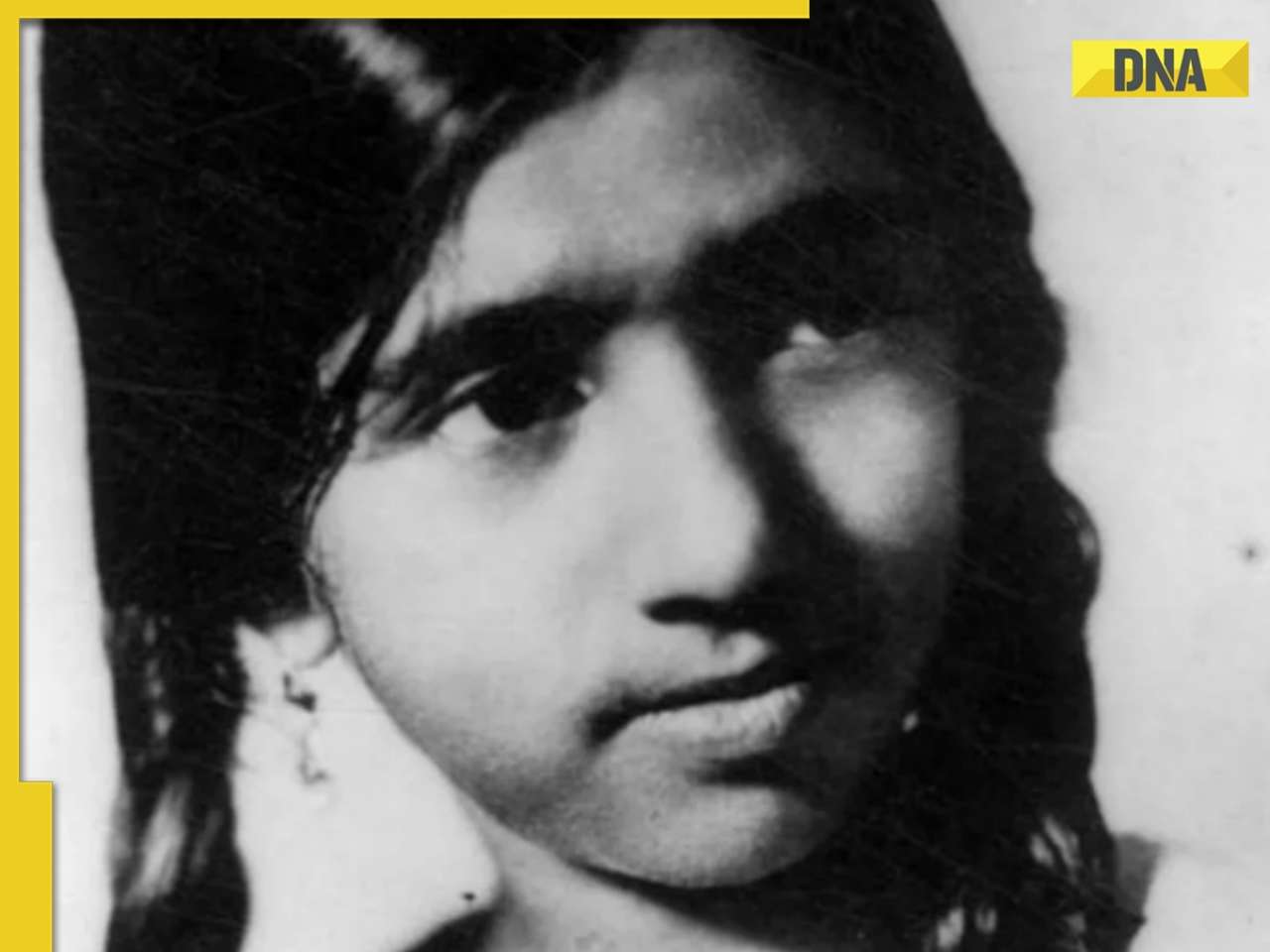


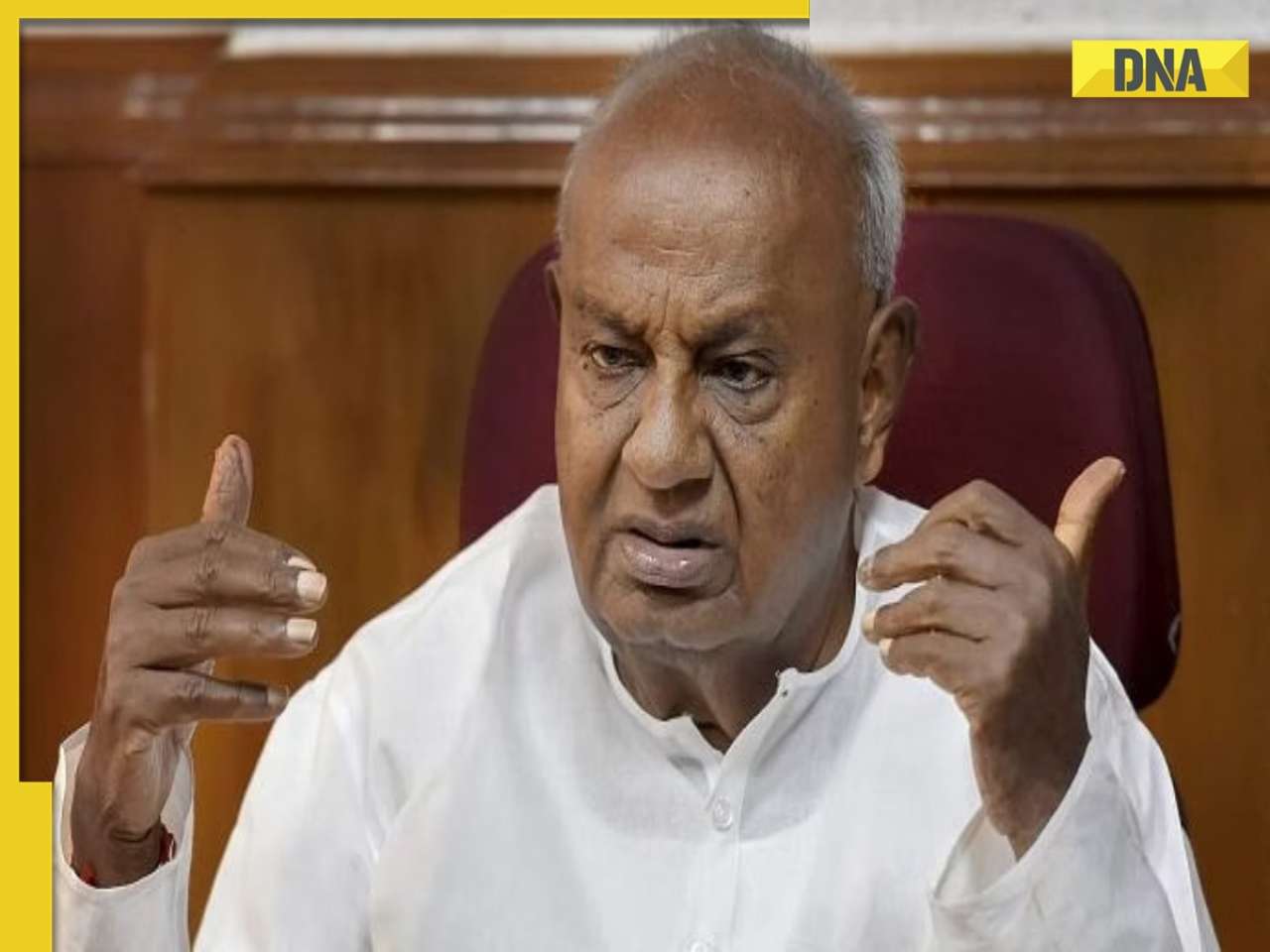
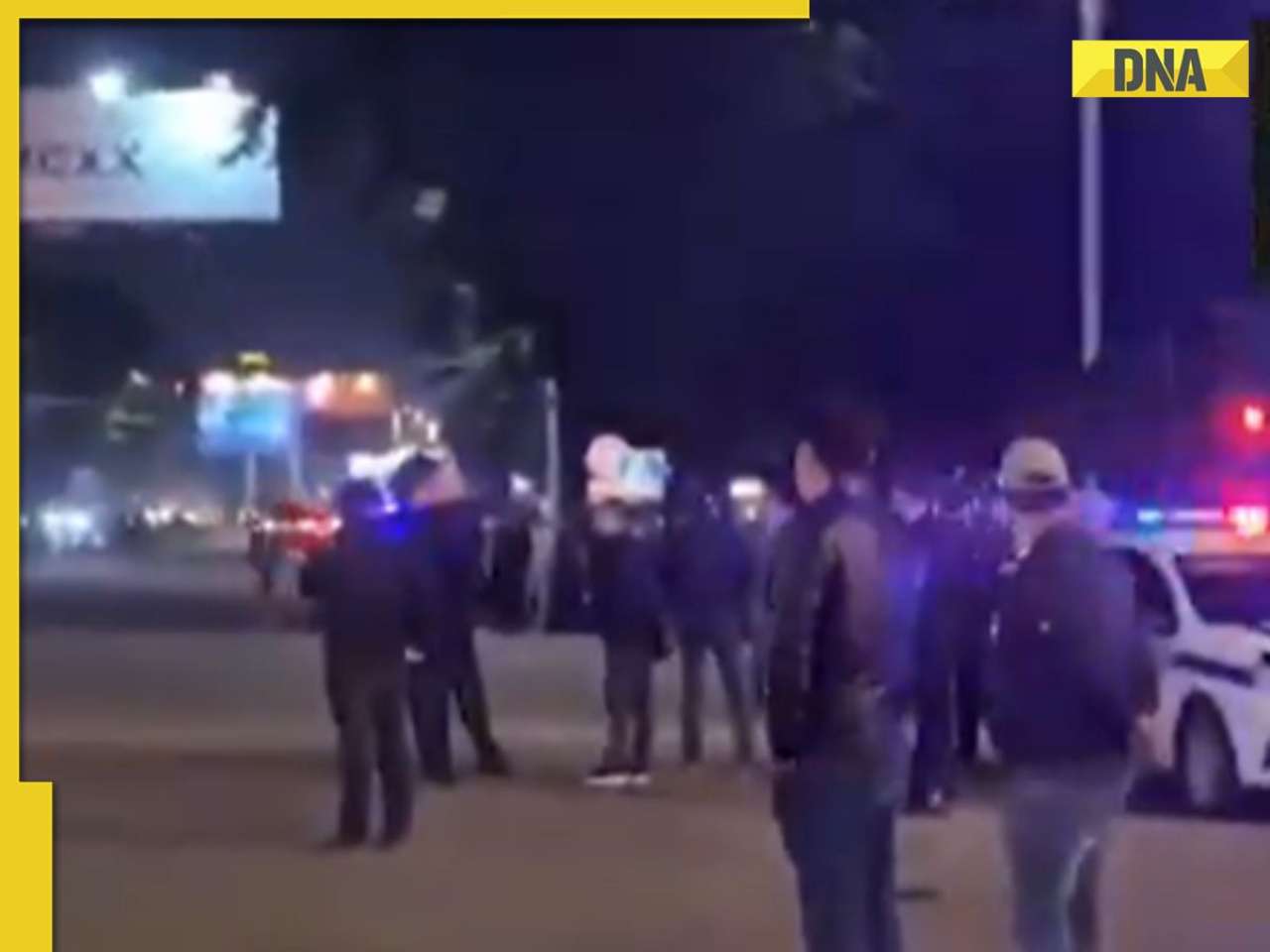



























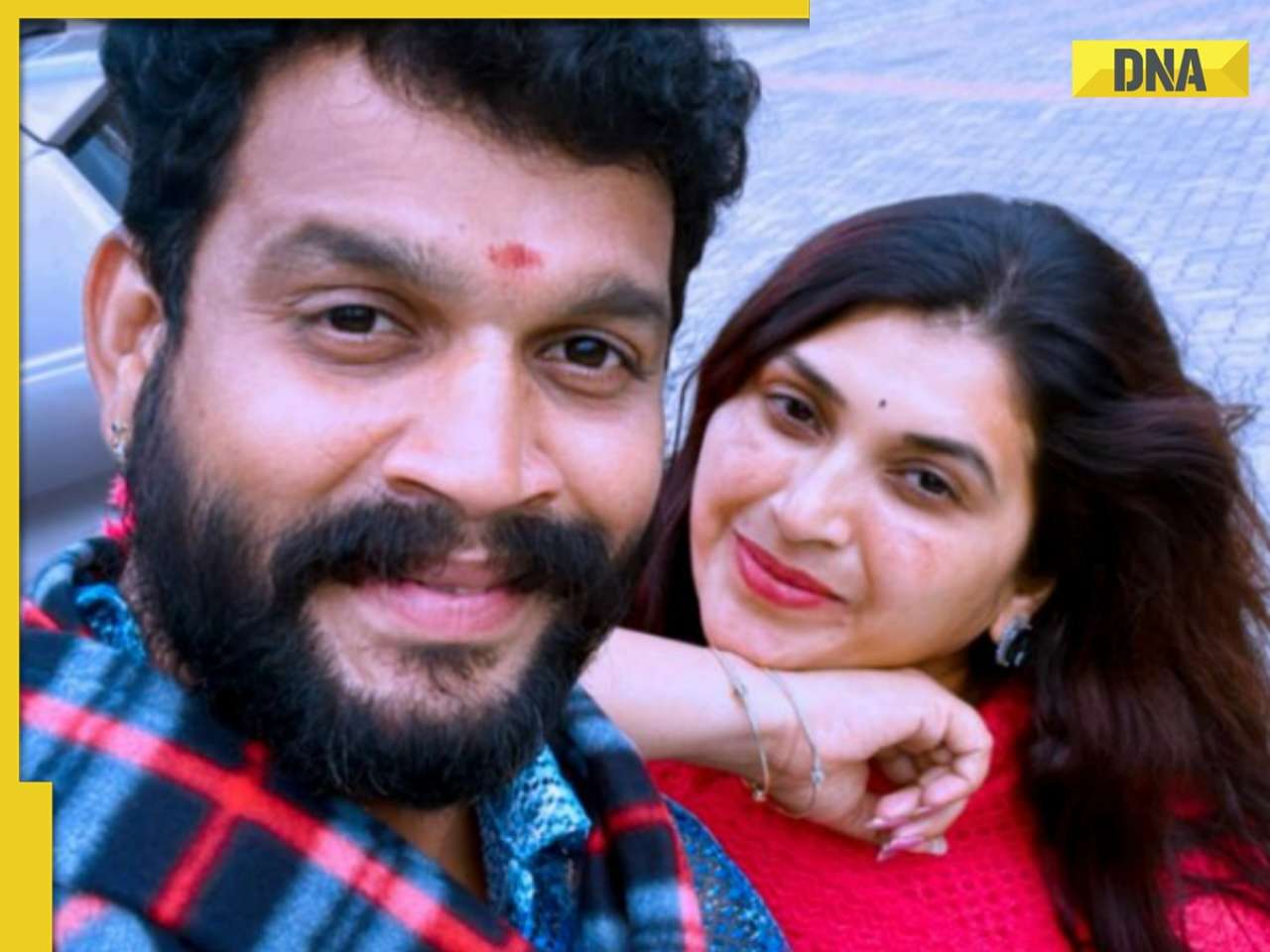

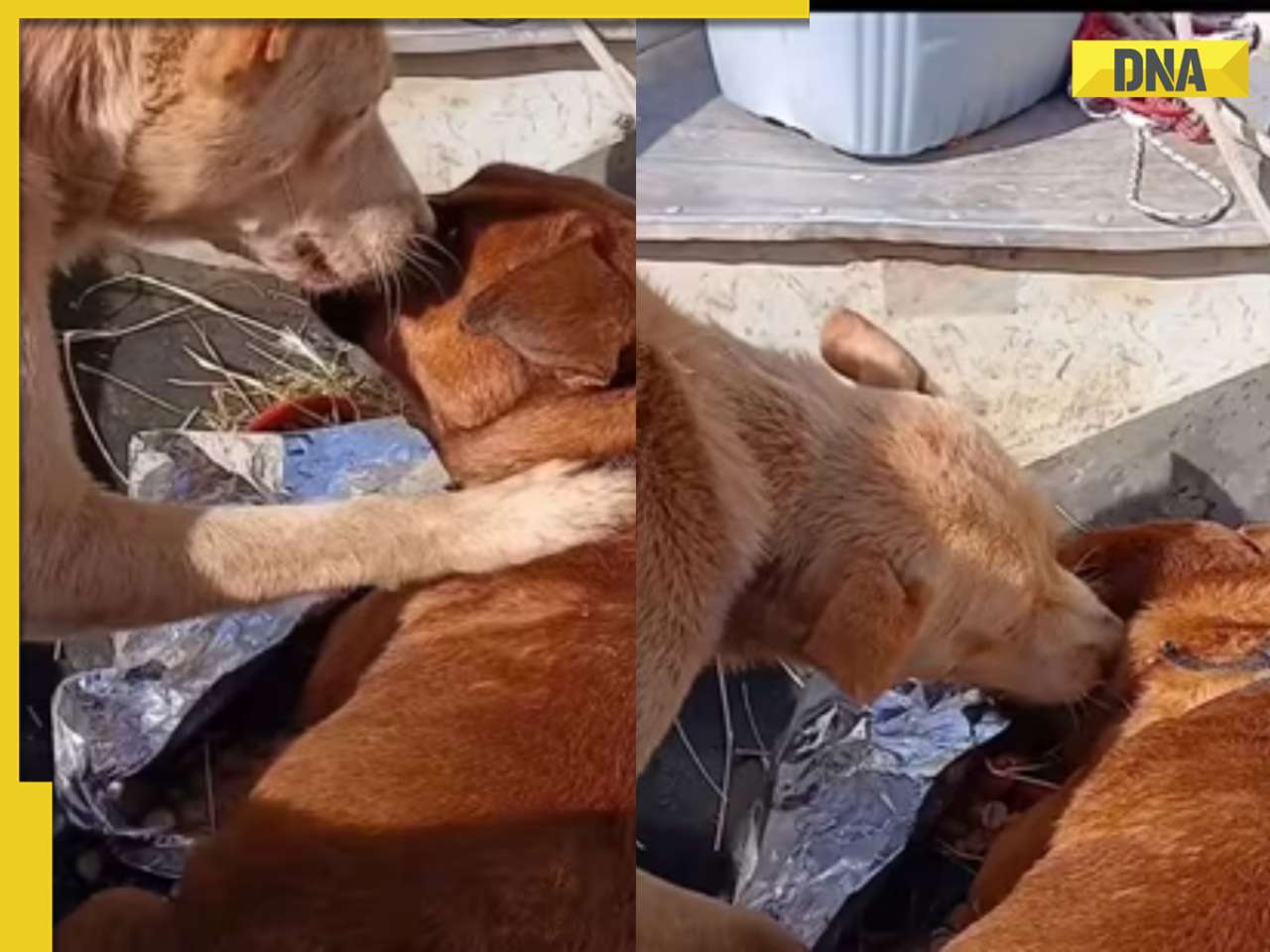
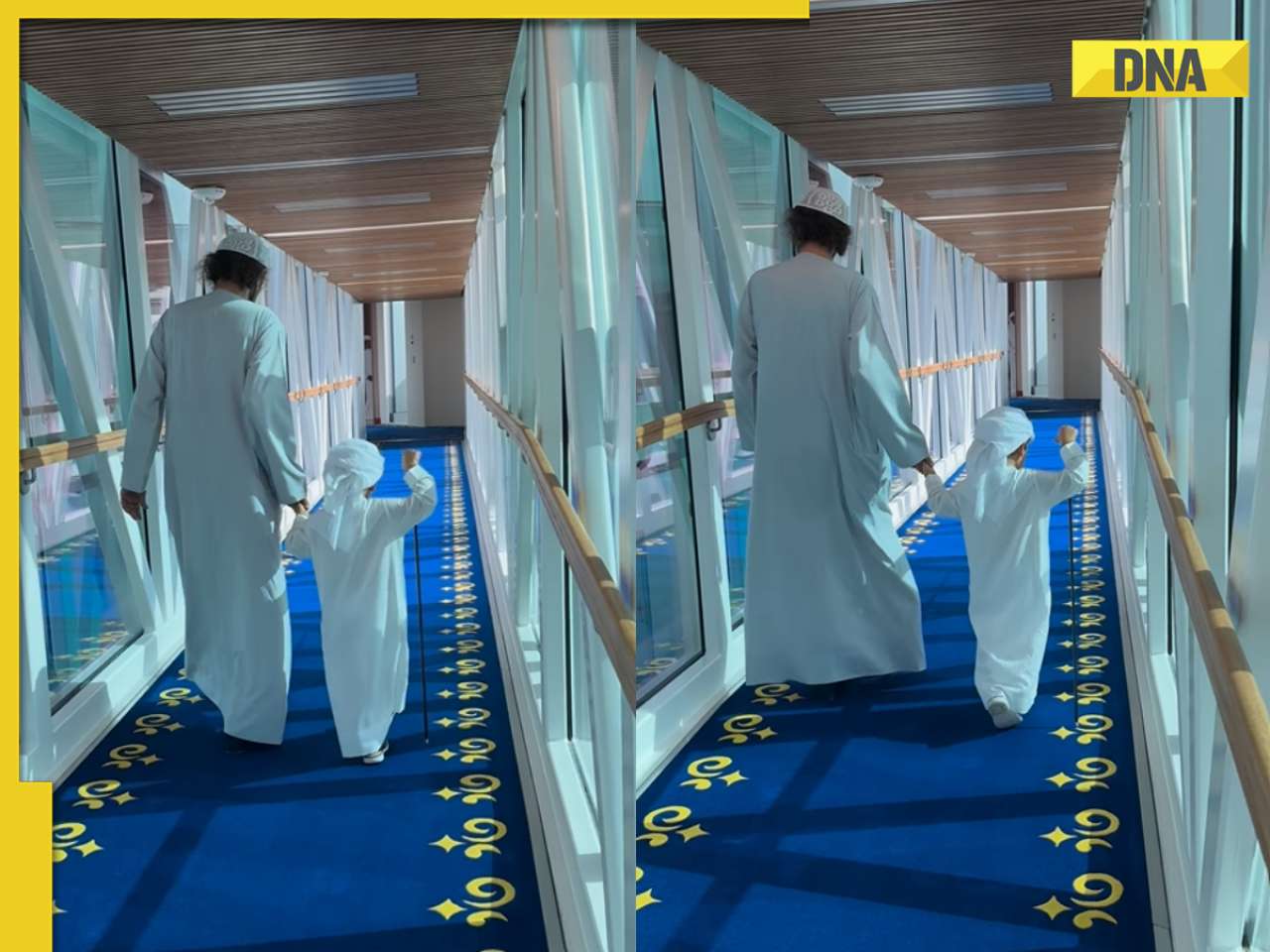




)




)
)
)
)
)
)